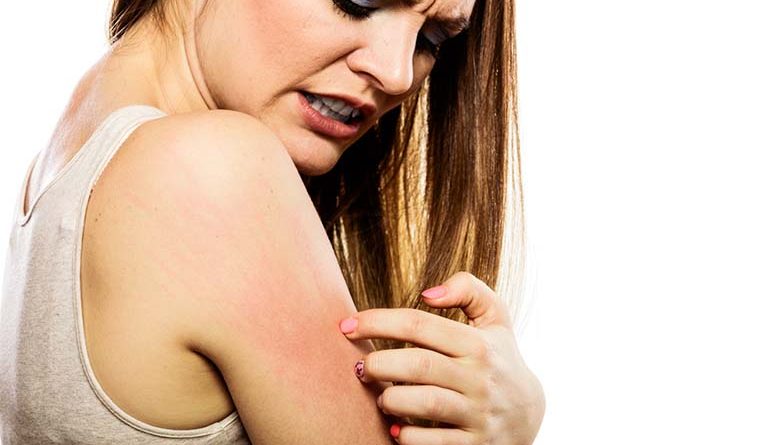Eczema is a common skin condition that causes inflammation and irritation, which can also be referred to as dermatitis. Eczema has a variety of subtypes, but all eczema types typically result in similar symptoms. These symptoms can be:
Itching: Itching can get severe, and scratching the affected areas can damage the skin.
Flaking: The outer layer of the skin can dry out, get flaky, and leathery.
Pus-filled sores: Oozing blisters may occur which can eventually crust over.
Cracks: The affected areas of the skin can form painful fissures.
People with eczema experience flares and symptoms of varying severity depending on their triggers. Eczema may also turn into a chronic condition with less severe symptoms. Here’s an overview of the two most common types of eczema (dermatitis).
Atopic Dermatitis
The most common type of eczema is known as atopic dermatitis. Atopic dermatitis is most common among individuals with hay fever or asthma or those with a genetic predisposition to eczema, hay fever, or asthma. Some people also have a problematic skin barrier which results in the release of too much moisture and the penetration of germs.
Atopic dermatitis most commonly affects the face, hands, feet, and folds of the knees and elbows. In time, scratching the affected skin leads to the lesions getting red and hardened. Scratching can also cause open sores that can result in infections.
Irritants and allergens are the common enemies of eczema and exacerbate symptoms. These include harsh soaps, cleaning supplies containing chemicals, and clothing made of coarse materials. Allergens such as dust mites and foods can also trigger eczema symptoms.
Eczema treatment options include moisturizing regularly, using ointments and creams containing a steroid, and newer medications for more severe cases that target the immune system such as Dupixent. In cases of infections, you may also be prescribed topical or oral antibiotics.
Contact Dermatitis
Contact dermatitis has two subtypes: irritant and allergic. These forms of eczema can arise upon the skin getting in contact with an irritant or inflammatory substance such as harsh chemicals. Over-washing of the hands is also a common cause.
Making contact with a trigger substance continually can result in the development of irritant contact dermatitis. Getting in physical contact with an allergen such as self-care products, nickel, or poison ivy can also lead to contact dermatitis. The hands are particularly susceptible to contact dermatitis.
Some common treatment approaches for irritant contact dermatitis are a strict moisturizing regimen and steroid medicines. Steroid medications are also used for the treatment of allergic contact dermatitis. Keep clear of allergy and substance triggers is key in managing both irritant and allergic contact dermatitis. Protecting your hands by putting on gloves when you are about to get in contact with harsh chemicals and other irritants is of utmost importance.
Featured Image: Depositphotos/© Voyagerix




